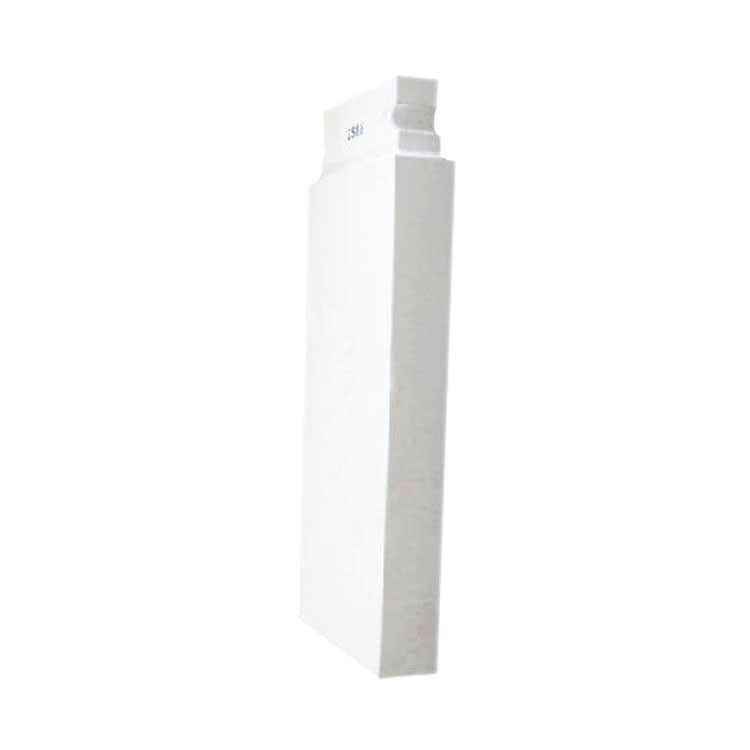
Industrial kilns, especially in the glass and coke oven sectors, face relentless demands for operational efficiency and durability during maintenance cycles. Traditional refractory materials often impose limitations — from susceptibility to thermal shock and expansion-related cracks to time-consuming installation processes requiring expansion joints. These issues translate into downtime, increased costs, and compromised kiln stability.
As thermal repair solutions evolve, zero-expansion silica bricks have emerged as a pioneering technology that directly tackles these challenges, offering a high-performance refractory option optimized for modern kiln repair needs.
Zero-expansion silica bricks are primarily composed of meticulously processed fused silica, delivering exceptional thermal stability. The fused quartz matrix exhibits a near-zero thermal expansion coefficient — approximately 0.1 x10-6/°C at temperatures ranging from ambient to 1000°C — significantly reducing deformation risk during rapid temperature fluctuations.
Combined with its outstanding resistance to acid corrosion and high refractoriness (up to 1710°C), zero-expansion silica bricks provide unparalleled resistance to thermal shock, withstanding over 50 cycles of rapid heating and cooling without cracking—data that notably outperforms traditional fireclay and silica bricks.
| Properties | Zero-Expansion Silica Brick | Traditional Silica Brick |
|---|---|---|
| Thermal Expansion Coefficient (10-6/°C) | 0.1 | 1.5 – 3.5 |
| Thermal Shock Resistance (cycles) | >50 | 15 – 30 |
| Chemical Resistance | Excellent (Acid & Alkali) | Moderate |
Thanks to zero-expansion silica bricks’ dimensional stability, repairs can often be conducted during kiln operation without the necessity of pre-installed expansion joints. This advantage drastically minimizes maintenance downtime. Repairs that previously took days can be completed in hours, contributing directly to increased production uptime.
In glass furnaces, zero-expansion bricks tolerate the harsh acidic vapors and corrosive environment, ensuring repair longevity. Similarly, their robustness under the intense thermal cycling of coke ovens allows for durable lining rehabilitation, significantly reducing the frequency of costly shutdowns.

When benchmarked against traditional silica and fireclay bricks, zero-expansion silica bricks demonstrate superior durability, significantly reduced cracking incidences, and simplified installation procedures that eliminate the need for complex expansion provisions.
This translates into fewer maintenance cycles, safer operation, and lower lifecycle costs — a compelling value proposition for procurement managers aiming to extend equipment lifespan while optimizing maintenance budgets.
.jpg)
Leading glass manufacturers report a 30% reduction in kiln downtime and a marked improvement in lining lifespan after integrating zero-expansion silica bricks in their maintenance protocols. One coke oven operator noted over six months of uninterrupted service post-repair, highlighting the product’s reliability under continuous thermal cycling.
These testimonials underscore not only the technical excellence but also the operational impact of zero-expansion silica bricks in industrial refractory maintenance.
.jpg)
Zero-expansion silica bricks represent a strategic advance in kiln maintenance technology, marrying exceptional material properties with practical operational benefits. Their ability to withstand severe thermal cycles, resist chemical attack, and simplify repair procedures makes them an indispensable asset for procurement teams targeting both performance and cost-efficiency.
Upgrading to zero-expansion silica bricks empowers industrial operators to optimize kiln longevity, improve maintenance turnaround, and secure stable production processes, reinforcing their competitive edge in glass and coke manufacturing sectors.
Discover how zero-expansion silica bricks can revolutionize your kiln maintenance strategy — reduce downtime, improve reliability, and maximize profitability.
Contact Our Technical Team Now
